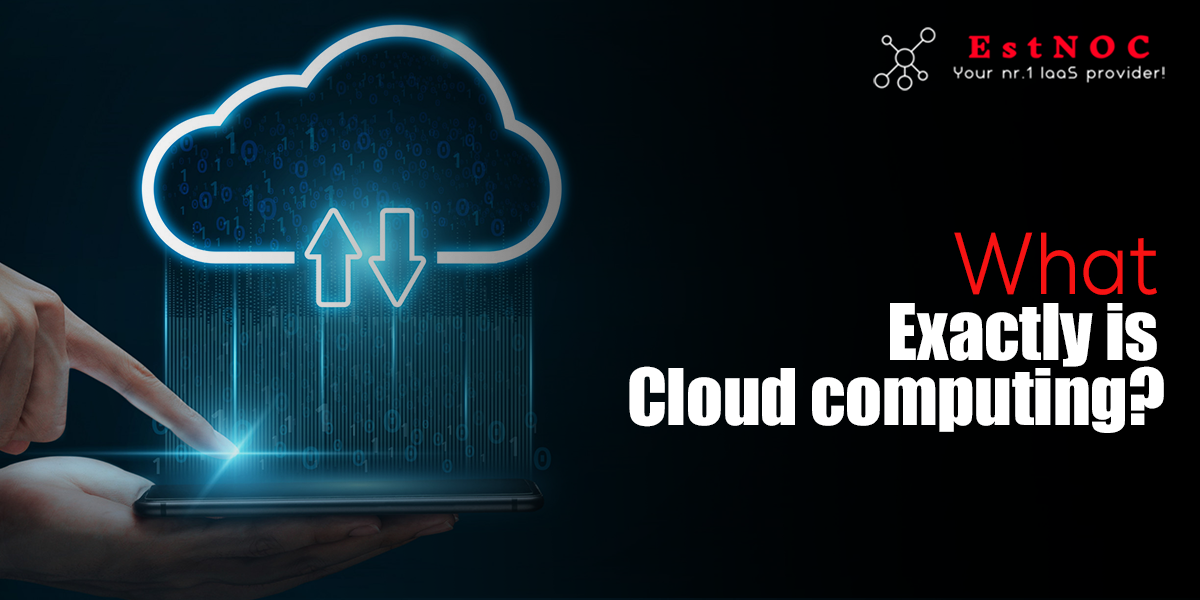10 Strategies for Optimizing....
In the ever-evolving..
By Admin / 13 February

These days, businesses and individuals rely more than ever on cloud computing. Whether it's for remote work, data storage, or hosting websites, cloud solutions have revolutionized how we access and manage information. The global shift to remote work and online business operations has only heightened the need for secure and scalable cloud services. Furthermore, Moreover, countries like Switzerland, known for their strong data privacy regulations, are becoming major hubs for cloud computing solutions.
Furthermore, when considering cloud computing in Switzerland, businesses must evaluate security, performance, and cost-effectiveness. This has led many to explore the differences between cloud hosting and other hosting, as well as strategies to secure cloud data with VPS servers.
But what exactly is cloud computing, and why is it essential in today’s tech-driven world? Let’s dive deep into this transformative technology.
The term "cloud computing" describes the provision of computer services, such as servers, storage, databases, networking, software, and more, via the internet (the cloud). Instead of owning and maintaining physical servers or data centers, businesses and individuals can leverage cloud providers to store and manage their data remotely.
Cloud computing eliminates the need for extensive hardware and enables users to access resources on demand, therefore making it a cost-effective and scalable solution for companies of all sizes. Also, with cloud solutions, businesses can operate efficiently while focusing on innovation rather than infrastructure maintenance.
Cloud computing comprises various components that make it a powerful and efficient technology. These include:
IaaS offers virtualized computer resources, such as networking, storage, and virtual computers, via the internet. Further, companies can scale their infrastructure without investing in physical hardware.
PaaS offers a development environment for building, testing, and deploying applications. Additionally, it provides the necessary tools and frameworks for developers to create applications without managing the underlying infrastructure.
SaaS delivers software applications over the internet, therefore, allowing users to access them from any device with an internet connection. Also, popular examples include Google Workspace, Microsoft Office 365, and Dropbox.
Before cloud computing, businesses relied on on-premises infrastructure, which required large capital investments and constant maintenance. So, here’s how cloud computing differs:
| Feature | Traditional Computing | Cloud Computing |
|---|---|---|
| Infrastructure | Requires physical servers | No need for physical infrastructure |
| Scalability | Limited by hardware | Highly scalable |
| Accessibility | Limited to physical location | Accessible from anywhere |
| Maintenance | Requires IT staff for maintenance | Managed by cloud provider |
| Cost | High upfront investment | Pay-as-you-go model |
Different types of cloud computing are as follows:-
A public cloud is owned and operated by third-party providers who offer computing resources to multiple users over the internet. For instance, AWS, Microsoft Azure, and Google Cloud.
A private cloud provides more control and security because it is exclusively used by one company. Additionally, it may be hosted by a third-party supplier or on-site.
A hybrid cloud combines public and private clouds, therefore allowing businesses to take advantage of both scalability and security.
Both cloud hosting and VPS (Virtual Private Server) hosting are popular choices for businesses looking for scalable and reliable solutions. However, they have distinct differences:
| Feature | Cloud Hosting | VPS Hosting |
|---|---|---|
| Scalability | Highly scalable | Limited scalability |
| Performance | Load balanced across multiple servers | Dedicated resources for better performance |
| Cost | Pay-as-you-go | Fixed pricing structure |
| Security | Shared security protocols | Can be enhanced with VPS security solutions |
For businesses focused on securing their data, security cloud data with VPS servers offers a more controlled and customizable approach to security.
Switzerland is emerging as a top destination for cloud computing due to its stringent data privacy laws and robust IT infrastructure. Also, companies looking for secure cloud services often choose Switzerland for the following reasons:
For businesses concerned about security, securing cloud data with VPS servers is a viable option. So, here are some best practices:
As technology evolves, cloud computing continues to shape the future of IT. Some key trends include:
Cloud computing has become an integral part of modern business operations, offering flexibility, scalability, and cost efficiency. Whether you're considering cloud computing, evaluating cloud hosting vs VPS, or looking for ways to secure cloud data with VPS servers, understanding cloud technology is essential for making informed decisions. Moreover, as the demand for cloud solutions grows, staying updated on the latest trends and security measures will ensure a competitive edge in an increasingly digital world.
EstNOC, a leading provider of cloud computing solutions, offers secure and high-performance VPS servers, dedicated hosting, and cloud infrastructure services. With a strong focus on data security and reliability, EstNOC helps businesses worldwide optimize their IT operations, eventually ensuring seamless scalability and compliance with stringent data protection regulations.